Why Gareth Southgate might just be England’s best manager since Terry Venables
Tactical flexibility, a unique outlook on the England set-up and a refusal to suck up to the media – might Southgate be the Three Lions' best manager in 20 years? Huw Davies ponders...
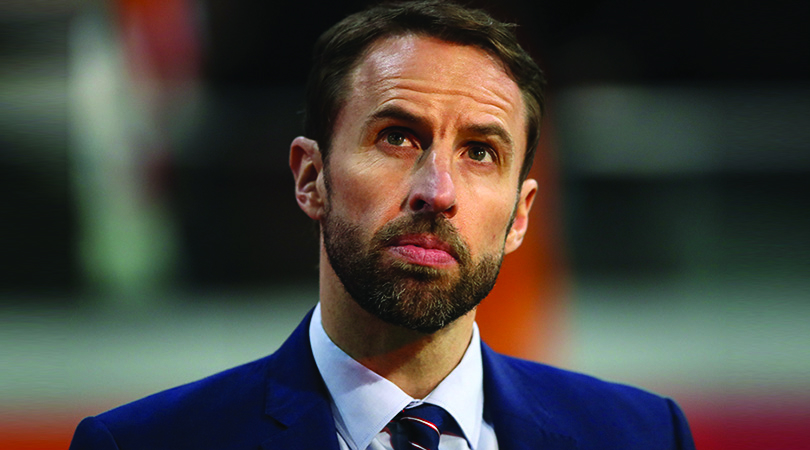
No. Nope. Nuh-uh. No, no, no, no, no, no, no. And further variations on that theme but with added profanity. This, we imagine, is most readers’ reaction to that headline, and not without reason. Gareth Southgate hasn’t even managed England’s men at a tournament yet, nor taken on a top international side in any competitive fixture.
So, to say that Southgate has already done more things right than any of his predecessors over the past 22 years, since Terry Venables took England to a European Championship semi-final… that’s a ridiculous suggestion, isn’t it? We say no. Nope. Nuh-uh. It’s not ridiculous at all.
A blank canvas
Ask yourself this: even if it didn’t work, when was the last time an England manager made a leftfield tactical decision? There have been tweaks, even surprises, not least when Roy Hodgson saw Euro 2016 as the perfect time to suddenly abandon the midfield solidity that had contributed to a perfect record in qualifying, instead packing Wayne Rooney, Dele Alli, Adam Lallana, Raheem Sterling and Harry Kane into a 4-1-4-1 monstrosity that even Pep Guardiola would call ‘a tad ambitious’. His unexpected switch at Euro 2012, giving Andy Carroll a rare start in a 4-4-2 formation against Sweden, was more successful.
Hodgson, though, was at least keeping within the confines of his players’ natural positions. He wasn’t, say, playing a wing-back at centre-half. Which is what Gareth Southgate just did with Kyle Walker in England’s 1-0 victory over the Dutch – a move so bold that, again, even Guardiola hasn’t tried it.
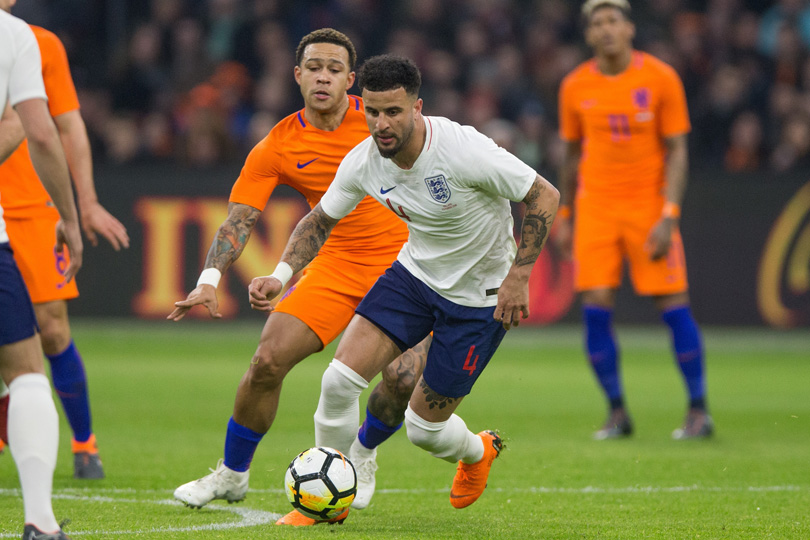
Whether or not Southgate’s plan worked is not the point (although most would argue that it did). What matters is that he tried something (and justified it logically post-match too, pointing at Walker's common in-game position for City). And his something different, something new, wasn’t a like-for-like change of personnel on a game-by-game basis, but a system that gave an established player an unfamiliar role – one he’d never played before – as one of four full-backs in the starting XI.
Tactical innovation has been absent from England’s national team in the past couple of decades. It’s understandable: with far less time to coach players than at club level, most international managers tend to implement their favoured system, which is why Fabio Capello made room for two strikers, and why Glenn Hoddle sacrificed attacking width and movement – not to mention David Beckham – for his preferred 5-3-2 setup. It was never the time nor the place for experimentation.
Get FourFourTwo Newsletter
The best features, fun and footballing quizzes, straight to your inbox every week.
Southgate, however, arrived with a blank canvas and, thanks to lower expectations and a gentle qualifying group, more opportunities to draw crazy patterns on it. He has no dogma. And yet he has introduced a certain style.
Creating a pathway
Southgate is way ahead of past England managers. Creating a link between juniors and seniors is something no previous incumbent has achieved
Like morning sunshine or a new face in the local, playing out from the back is viewed with mistrust in England. Fans and commentators, including Hoddle just a few days ago, still exhort the world’s best defenders to “get rid”. England’s new generation of defenders are more comfortable on the ball, though, and Southgate has encouraged this self-confidence to the point that Jordan Pickford’s distribution may make him first-choice goalkeeper at the World Cup.
A short passing game isn’t intrinsically better than any other way of playing, and it’s risky at international level where the training time is limited, the matches fewer and the stakes therefore higher. The solution is to implement this tactic across England’s various youth teams, creating an ‘England DNA’ (stop rolling your eyes) that grows organically in the players as they progress through the age ranks. It’s possible that we failed GCSE biology, by the way.
Here, Southgate is way ahead of past England managers. Creating a link between juniors and seniors is something no previous incumbent has achieved, or perhaps even tried to achieve. The ex-defender was at least 15 years younger upon appointment than each of England’s previous three managers, sexagenarians all, but more importantly he’s the first non-caretaker in the national team’s history to have managed the seniors and one of the youth teams.
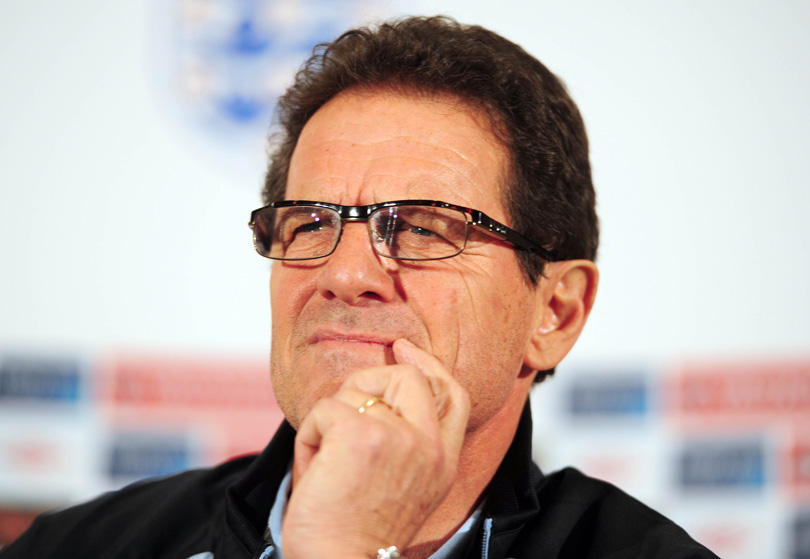
In his 18 months in charge, Southgate has given debuts to a number of his former under-21 players, including Pickford, Joe Gomez, Michael Keane and Ruben Loftus-Cheek. The pathway has been established, and England’s youngsters know it. Of course, Southgate can’t take credit for the youth teams’ incredible success in 2017, but he helped to sow the seeds and he will reap the… corn? We may have failed GCSE food tech as well.
Limited options
The link between the Three Lions and their cubs is even more important when one considers the personnel available to Southgate right now. This isn’t a bad England squad by any means – some players, such as Walker, Harry Kane and Raheem Sterling, are among the world’s best in their respective positions – but Southgate does have more holes to fill than most of his predecessors did, which brings us back to the question of his place in the canon of recent England managers.
In the 1990s, England had an embarrassment of riches in attack, rather than the embarrassment of 34-year-old Glenn Murray being linked with a call-up. Tammy Abraham and Dominic Solanke had shared a career total of 20 top-flight appearances when they received their first caps; how many international appearances might have been in store today for Andy Cole, Les Ferdinand and Dion Dublin, who scored a combined 447 Premier League goals but won fewer caps between them than Danny Welbeck has already?
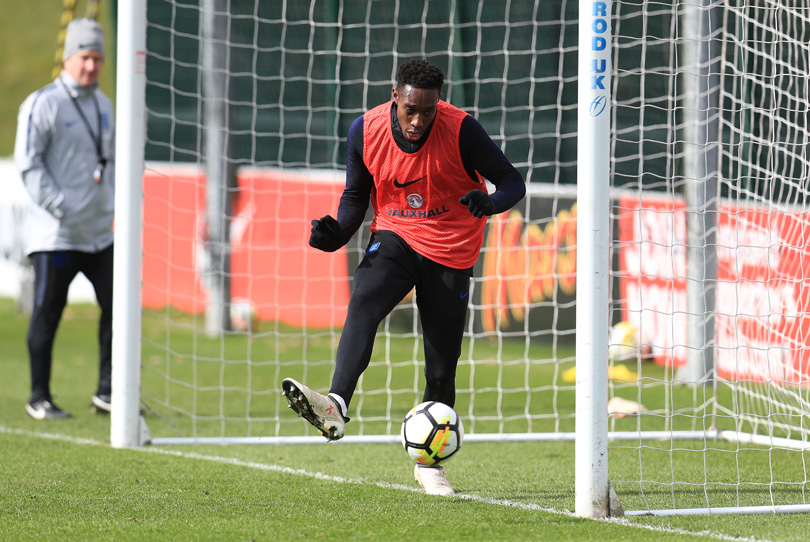
Then, in the 2000s, England had arguably the most talented individuals of any international midfield on the planet: Frank Lampard, Steven Gerrard, Paul Scholes, David Beckham, Owen Hargreaves, Joe Cole. Today, limited options mean that Jake Livermore may travel to the World Cup without having won a Premier League game since August last year.
Similarly, in defence there’s no Rio Ferdinand, John Terry or Sol Campbell to provide a bedrock for Southgate’s team – only John Stones and a sea of mid-table makeweights or back-ups for the big boys. Yet England have just kept five consecutive clean sheets (admittedly scoring only three goals in that time), experimenting with new players and systems even while shutting out Germany and Brazil, two of the world’s best teams.
The upside for Southgate is that with no players whose selection or omission will dominate the back pages, he has tactical freedom and freedom from expectations. He doesn’t have to solve the Gerrard-Lampard dilemma, nor play Rooney on the wing in a World Cup so as to accommodate a) Sterling, b) Rooney, and c) journalists who demand both are picked. Southgate is free - to an extent.
Sticking it to Boris
Southgate realised early on that there was no point in trying to win over the media with words. He was immediately painted as the FA’s yes-man, lacking the vaulting ambition that did for Sam Allardyce, the media darling brought low, ironically, by a newspaper sting. Southgate turned down the job at first, showing a self-awareness that’s lacking in several of his contemporaries who seemingly feel they ‘deserve’ a shot at managing England.
I don’t think we should just talk about racism in Russia. We’ve got to get our own house in order
In fact, rather than being a mere stooge, Southgate is pretty likeable and very honest. But as most appointments this century were savaged in the press, from Sven-Goran Eriksson (suspiciously foreign) to Roy Hodgson (suspiciously not Harry Redknapp), there was no sense in fighting the assumption that he’d be an uninspiring figure.
So, when the 47-year-old speaks at press conferences it’s with a quiet, measured intelligence, with no overtures to make friends, nor headlines. And that’s why Southgate’s comments on Russia and Boris Johnson were so well gauged.
Southgate isn’t the FA’s yes-man. Doubtless his employers would rather he’d said nothing to upset either Russia or the British Government when he was asked about Johnson’s recent rabble-rousing over racism ahead of the World Cup. Instead, the England manager replied: “It’s of little interest to me what the Foreign Secretary thinks about it,” then added: “I don’t think we should just talk about racism in Russia. We’ve got to get our own house in order. We haven’t resolved the issue in our own country. Until we do, I think we should stop firing off those things elsewhere.”
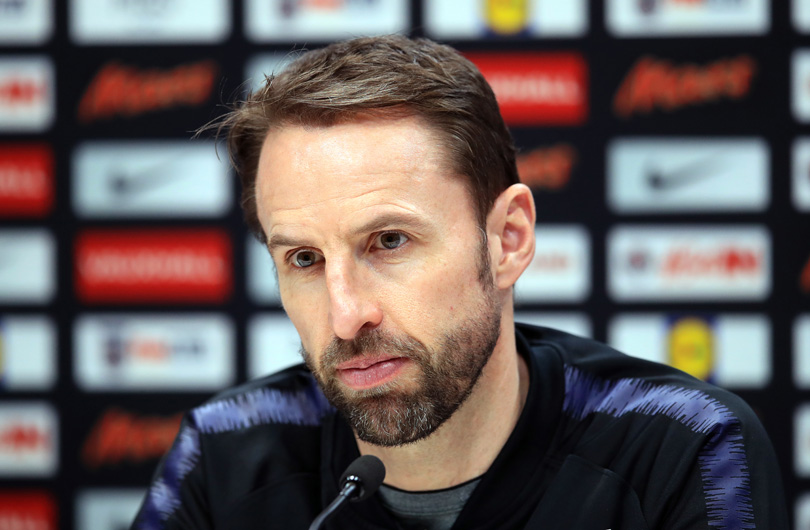
It was expertly phrased. Southgate simultaneously made a bland statement interesting, by amending the stock FA-friendly response (“We see no problem with Russia, we’re looking forward to the World Cup, football is a rainbow”) and reminding his bosses that they’ve some way to go in the fight against racism, and made an interesting statement bland enough to pass without criticism: “It is of little interest to me what the Foreign Secretary thinks” is rather more tactful than “Boris is a tit”.
The march on Russia
A favourable draw gives England time to settle into the tournament, playing Tunisia and then Panama, before taking on Belgium
That’s enough about press conferences – what about results? Do they support our claim that Gareth Southgate is England’s best manager of the past 20-odd years?
Yes and no. Southgate will never have the best win ratio in the Three Lions’ history – Sam ‘one match, one win’ Allardyce probably has that record sewn up for a while yet – and the goals have dried up of late, but W8 D5 L2 is pretty good when it includes draws with Brazil, Germany and Spain.
Prospects for the 2018 World Cup are encouraging. A favourable draw gives England time to settle into the tournament, playing Tunisia and then Panama, before taking on a Belgium team who admittedly haven’t lost any of their 15 matches following a defeat in Roberto Martinez’s first game in charge, but who have also yet to face a test of their questionable mental strength. Poland, Colombia or Senegal await the two Group G qualifiers in the second round. A return to the quarter-finals would help Southgate’s case.
And without wanting to be too critical, look at the competition he faces. Who since Venables could claim to have done a better job with England than Southgate has to date? Obviously not Steve McClaren, nor Sam Allardyce (100% record notwithstanding), and Kevin Keegan was predictably undone by his tactical naivety.
Roy Hodgson received far more criticism than he deserved over the course of his four years, but it’s hard to look past the manner of England’s exits from the last World Cup and Euro 2016.
At the other end of the scale, Glenn Hoddle’s stock is so high among pundits and ex-players that several sincerely recommended he replace Hodgson in 2016, a decade on from his last job in football. But what of Hoddle’s own record? At France 98 he sidelined England’s most creative talents, finished second in a winnable World Cup group and subsequently crashed out to Argentina, then sentenced England to a Euro 2000 play-off with a bad start to the qualifying campaign before being dismissed for… well, let’s not go into that.
Fabio Capello, then? The handsomely-remunerated Italian has the best non-Allardician win rate of any England manager. However, in his only tournament in charge, he picked the oldest squad in England’s history and gave the fans their most miserable World Cup in a generation.
Which leaves us with Sven-Goran Eriksson. Three quarter-finals resembles a good return, comparatively speaking. But for all of hindsight’s scoffing, Eriksson was blessed with a talented team, comparatively speaking. Nevertheless, his charges wasted excellent opportunities in 2002 (where the Germany team they’d beaten 5-1 ended up in the World Cup final) and 2004 (where bad luck intervened, but only after England had blown their chance to enter the easy half of the draw), then concluded Eriksson’s reign with a series of soporific performances in the 2006 World Cup.
If Gareth Southgate can guide his team to the quarter-finals or beyond in Russia, he’ll already have matched the achievements of seven managers who were surely in better positions to succeed. Maybe, though, he has already done a better job than any of them. No?
Huw was on the FourFourTwo staff from 2009 to 2015, ultimately as the magazine's Managing Editor, before becoming a freelancer and moving to Wales. As a writer, editor and tragic statto, he still contributes regularly to FFT in print and online, though as a match-going #WalesAway fan, he left a small chunk of his brain on one of many bus journeys across France in 2016.

